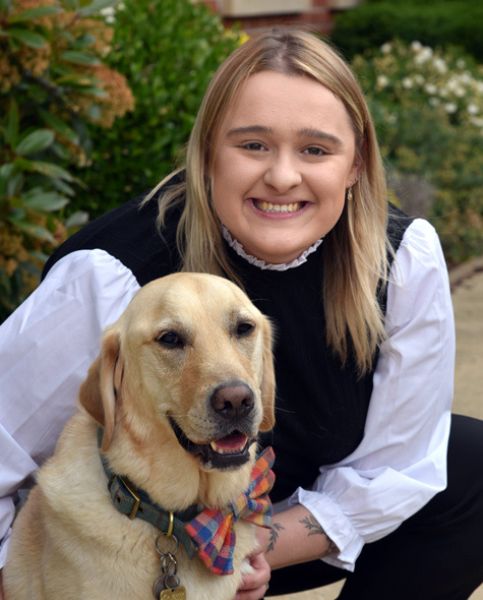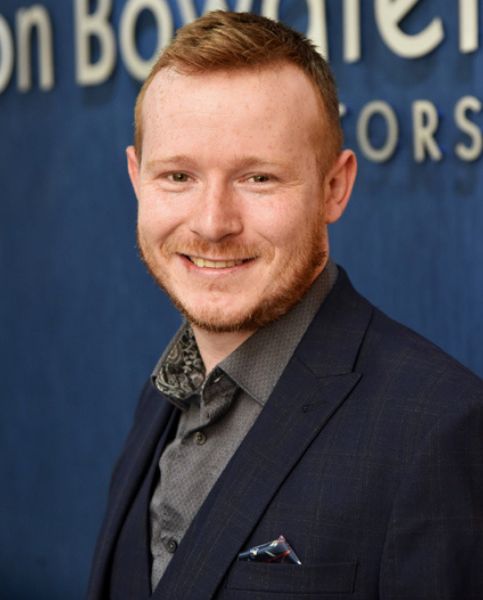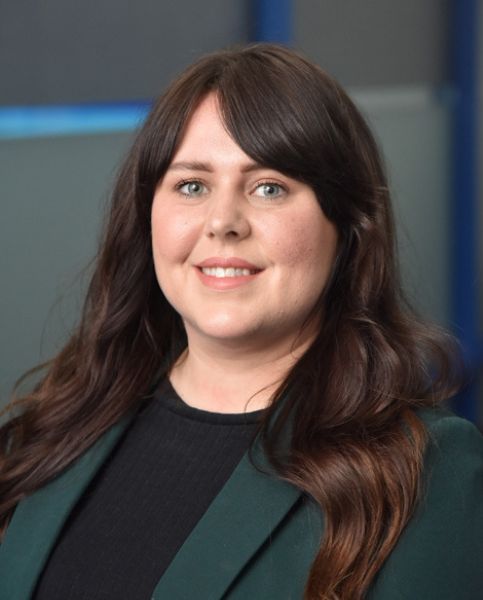Misdiagnosis of Breast Cancer
Oesophageal Cancer Negligence & Misdiagnosis Claims Solicitors.
Oesophageal cancer affects the oesophagus, also known as the food pipe or gullet, which connects the mouth to the stomach.
As with many types of cancer, oesophageal cancer is often treatable when it is detected early enough. However, any delay in diagnosing cancer of the oesophagus can result in the disease spreading to other parts of the body, thus becoming harder to treat.
Receiving a diagnosis of oesophageal cancer will be a very worrying time. Treatment typically begins straight away, and it may take several months to destroy the cancerous cells, which will usually involve taking an extended period of time off work. This may have a huge financial impact on you and your family, and money worries may exacerbate the stressfulness of the situation.
If it later comes to light that the medical care you received was below standard, and that your oesophageal cancer was allowed to progress and worsen as a result of clinical negligence, this can further enhance your suffering.
Here at Lanyon Bowdler we have helped many clients in your situation to claim the compensation that was owed to them after receiving negligent medical care. Our highly qualified and experienced team of medical negligence solicitors will guide you through the whole process, ensuring you are kept updated and informed at all times.
Can I claim compensation for Oesophageal Cancer Negligence?
If you have received negligent treatment from a medical professional which has led to a worsening of your oesophageal cancer you may be entitled to make a claim for compensation.
Negligent treatment can be any behaviour that differs from what another reasonable professional in the same field of expertise would have done. This principle is called the Bolam Test, and is one of the ways we can legally establish a reasonable level of care.
If your case is found to fail the Bolam Test, then we can prove there has been a breach of the duty of care, and therefore a case for Oesophageal Cancer Compensation. Here at Lanyon Bowdler our specialist team of cancer negligence solicitors have the experience and the expertise. Contact us today.
Our Oesophageal Cancer Claims Expertise
Lanyon Bowdler is a specialist firm of Medical Negligence Solicitors with years of experience supporting clients in cancer negligence claims, including those involving cancer misdiagnosis. Our expertise in this field is recognised by national organisations, peers, and clients across the UK.
The Medical Negligence Team is recognised in Tier 1 for the West Midlands in the 2025 edition of the Legal 500, which states ‘The ‘efficient and pragmatic’ team at Lanyon Bowdler adopts a ’truly personal approach’ when dealing with cases involving birth, brain and fatal claims. It also frequently handles high-value cases relating to amputations and spinal injuries’.
Chambers UK 2025 rank the department in Band 1 for the Midlands and states ‘an impressive practice group with a growing presence across the West Midlands. The team offers specialist advice across the full gamut of clinical negligence mandates, with particular experience in cases of surgical error, delayed diagnosis and failure to supervise those at risk of suicide. The firm is additionally skilled in cases relating to post-surgical negligence, brain injury and fatal claims.’
Listen here to Beth Heath and a former colleague from the Clinical Negligence team talk about the delay in diagnosis of Cancer, using fictitious, but typical cases to illustrate the challenges people are facing.
Your Oesophageal Cancer Compensation questions answered
Oesophageal cancer is a type of cancer which affects the long food pipe connecting the throat to the stomach. There are several different types of oesophageal cancer, but over 95% of cases are adenocarcinomas or squamous cell carcinomas.
- Adenocarcinoma – This is the most common type of oesophageal cancer, and it develops in the glandular cells found within the submucosal lining of the oesophagus. Adenocarcinoma mainly affects the lower part of the oesophagus; it is associated with a history of acid reflux and being overweight and is more common in men than women.
- Squamous cell carcinoma – This is the second most common type of oesophageal cancer and is linked to drinking alcohol and smoking. Squamous cell carcinoma develops in the squamous cells of the inner oesophageal lining in the middle and upper parts of the oesophagus.
- Undifferentiated cancer – In some cases the cancer cells may appear to be undeveloped when viewed under a microscope, so the oncologist may be unable to determine which type of oesophageal cancer you have, in which case they would diagnose undifferentiated oesophageal cancer.
Whichever type of oesophageal cancer you have been diagnosed with, if there was any delay in receiving the correct diagnosis due to medical negligence, you may be able to claim compensation. If your condition has worsened as a result of clinical negligence, we can help you to claim what you deserve, so please don’t hesitate to get in touch with our team today.
All medical professionals owe their patients a duty of care to ensure they provide an adequate level of care as a minimum. Any failure to uphold this duty of care could be considered clinical negligence, and compensation may be sought if said negligence has caused a deterioration in the health of the patient.
There are several ways in which oesophageal cancer negligence could occur, including:
- Failure to recognise the symptoms of oesophageal cancer
- Failure to refer a patient to a specialist urgently
- Failure to carry out the necessary diagnostic testing
- Failure to read and interpret the test results accurately
- Failure to inform a patient of the test results
- Failure to prescribe the appropriate course of treatment
This list is by no means exhaustive, and if you have suffered in any way because of negligent behaviour, you may be eligible for a claim.
The symptoms of oesophageal cancer can often be very similar to those of other, less serious, conditions, which can give way to potential misdiagnosis. If you notice anything unusual in your body, it is always worth seeing your GP for further investigation.
Some of the key symptoms to look out for include:
- Difficulty swallowing (dysphagia)
- Pain when swallowing
- Pain/burning in the chest
- Heartburn and/or indigestion
- Nausea and vomiting
- Regurgitating food
- Unintended weight loss
- Loss of appetite
- Persistent cough
- Throat pain or hoarseness
- Coughing up blood
- Blood in the vomit/stool
- Pain/discomfort in the chest
- Feeling very lethargic
This list is not exhaustive, and if you develop any unusual symptoms, it is always advisable to see your GP as soon as possible so that they can rule out the potential causes and set you on the right path to diagnosis. Oesophageal cancer stands the best chance of being curable when it is diagnosed early, so it is vital that you act quickly when symptoms occur.
Specialists typically use a combination of different tests in order to produce an accurate diagnosis of oesophageal cancer. These tests include the following:
- Gastroscopy – A type of endoscopy in which a camera is inserted into the oesophagus and stomach in order to look for abnormalities.
- Biopsy – During the gastroscopy a small sample of cells may be collected in order to be sent to the lab for testing.
- Blood test – In some cases a blood test can be used to confirm an oesophageal cancer diagnosis, as the cancer may potentially cause anaemia or liver problems.
If your GP suspects oesophageal cancer they should refer you urgently to a specialist for further testing. Failure to refer you, or failure of the specialist to carry out the appropriate tests could constitute medical negligence and could form the basis of a compensation claim.
The type of treatment prescribed for oesophageal cancer will usually depend on the type and stage of cancer, the location of the tumour, whether it has spread to other parts of the body, and your general health. In most cases patients will be treated with multiple complementary methods which provide the best possible chance of curing the cancer.
Some of the most common ways in which oesophageal cancer is treated include:
- Surgery – If oesophageal cancer is detected early enough and is still confined to the oesophagus, it may be possible to remove the tumour by taking out some or all the oesophagus, and potentially some of the surrounding organs if they are affected.
- Chemotherapy – This is a type of medicine administered either intravenously or orally to kill cancer cells. It can be used as a stand-alone treatment or may be used before surgery to shrink the tumour, or after surgery to eliminate any remaining cancerous cells.
- Radiotherapy – High energy radiation rays are used to target and kill cancer cells and may be used in conjunction with chemotherapy to treat early oesophageal cancer, or to help control the spread and improve the symptoms of advanced stage cancer.
- Targeted medicines/immunotherapy – These methods aim to slow or stop the spread of oesophageal cancer in cases where it has spread to another part of the body, cannot be cured, or to reduce the risk of the cancer redeveloping after surgery.
Your cancer treatment should be coordinated by a multidisciplinary team of clinicians, and they have a duty of care to provide you with the most appropriate course of treatment based on the type and stage of your cancer, as well as your overall condition of health. Any breach in this duty of care may constitute medical negligence and could put you in a position to claim compensation.
It is not known exactly why some people develop oesophageal cancer, however, there are several factors which may increase the likelihood of a person developing the condition, including:
- Age – The risk of developing oesophageal cancer increases with age
- Sex – Men are at a higher risk of developing the disease than women
- Obesity – Being obese can increase a person’s risk of oesophageal cancer
- Smoking – Regular use of tobacco is a major risk factor for cancer of the oesophagus
- Alcohol – Heavy consumption of alcohol can damage the oesophagus
- Barrett’s oesophagus – This is a condition which causes the cells lining the oesophagus to transform, becoming more like stomach cells
- Human papillomavirus (HPV) – This is an infection transmitted via sexual intercourse which has been linked to an increased risk of oesophageal cancer
If you fall into any of the above categories, it does not necessarily mean that you will develop cancer of the oesophagus. However, if you present to your GP with concerning symptoms, and you fit the above criteria, they owe you a duty of care to refer you for urgent testing in order to rule out or diagnose cancer.
What our clients say.
Time Limits on Making a Oesophageal Cancer Claim and Funding Options
In general, the time limit for bringing a Oesophageal Cancer Claim is three years from the date of the negligent act or the ‘date of knowledge’ of the injury (to cover situations where the impacts of negligence surface at a future time).
However, if a child suffers because of the negligence of another party, the time limit will usually expire on their 21st birthday unless the child never gains mental capacity due to their injuries, in which case the time limits do not apply.
We can support your Oesophageal Cancer Claim through a range of funding options, including our No Win No Fee Medical Negligence Claim promise, as well as through private funding, and legal expenses insurance. Our solicitors will consider whether we can handle your Oesophageal Cancer Claim on a No Win No Fee basis at the point of an initial evaluation of the circumstance surrounding your injury.
Contact our Oesophageal Cancer Solicitors
Please get in touch with one of our specialist medical negligence lawyers if you consider that you may have a Oesophageal Cancer Negligence Claim.
At Lanyon Bowdler, we take pride in being a friendly and approachable law firm in Wales, so please get in touch if you or a loved one have been affected by a late or missed diagnosis, or incorrect treatment. Our team will be happy to talk you through the process of filing a compensation claim. There is no obligation to you for any charges for our initial assessment.
Our Medical Negligence team is widely acclaimed and recognised as one of the best clinical negligence departments in the country. We are committed to providing exceptional levels of client care and will work closely and considerately with you to help find the best outcomes and help to get your life back on track.
We have offices in Shrewsbury, Telford, Oswestry, Ludlow, Hereford, Bromyard and Conwy, where our friendly, knowledgeable staff will be happy to welcome you for an initial chat about your requirements.
By choosing Lanyon Bowdler for any form of Medical Negligence Claim, you can rest assured that you have the best legal expertise on your team.
Meet the team.
Case studies.
Latest knowledge.
Our awards and accolades.
Get in touch.
"*" indicates required fields

 Back
Back





























 Case Study
Case Study


 Blog
Blog








